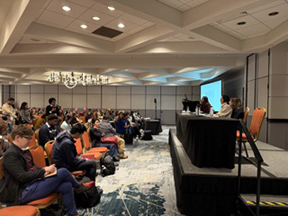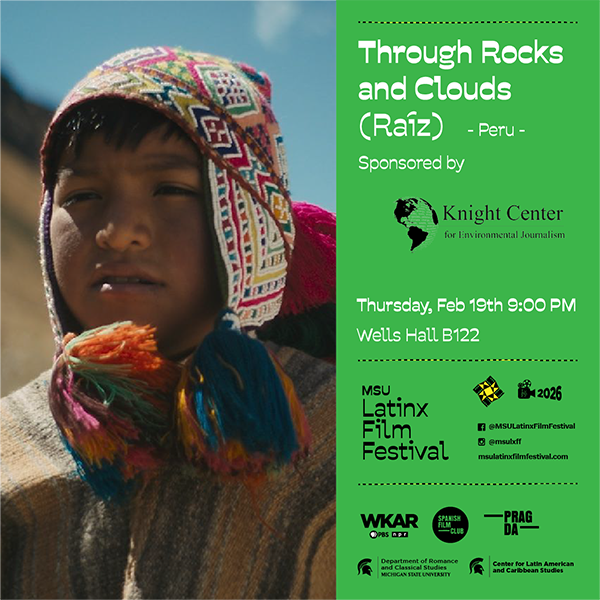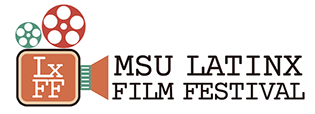MSU Latinx Film Festival returns with international films, music and conversations
By Isabella Figueroa Nogueira
The MSU Latinx Film Festival (LxFF), cosponsored by the Knight Center for Environmental Journalism, returned Feb. 19 -22 for its fourth edition, bringing international cinema, live music and conversations about immigration, environmental justice and identity to Michigan State University and venues across Lansing.

Attendees watch a film at MSU’s Latinx Film Festival. Credit: Scott Boehm.
Founded in 2018 by Scott Boehm, an assistant professor of 20th and 21st Spanish culture, the festival has grown from six films over four days into the largest Latino, Hispanic and Latin American film festival in Michigan. Nearly all of this year’s films were Michigan premieres, and more than half were Midwest premieres.
Several selections were previously screened at major international festivals, including the Berlin International Film Festival and the Venice Film Festival. Boehm said many of the films had only one or two screenings in the United States before arriving in East Lansing.
“What you’ll find is something you would expect to see in New York or Miami or Houston or San Diego or LA,” Boehm said. “But it’s in Lansing.”
This year’s lineup featured 12 full-length films and shorts from Mexico, Peru, Venezuela, Cuba, Brazil, Puerto Rico, the Dominican Republic, Spain and the United States. Topics included immigration, racism, U.S. militarism in Latin America, child sex trafficking, class, ageism and environmental justice.
Environmental justice has become a permanent part of the festival’s programming. Boehm said the climate crisis is one of the most pressing issues facing the planet and that Indigenous and marginalized communities often feel its effects first. Continue reading

 By Shealyn Paulis
By Shealyn Paulis


